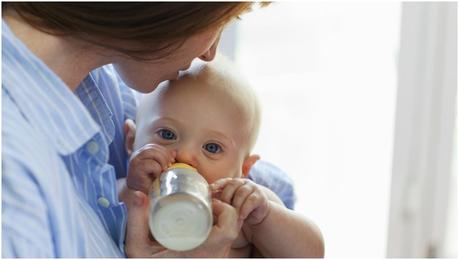Buying whole baby formula and baby products in bulk is smart for a number of reasons. First, baby products are costly, but buying items in greater amounts also saves a huge amount of money.

Not all baby products should be purchased in bulk—or at least not without a fair test run first. You want to make sure all of you and your kid enjoy what you're getting until your pantry is stuffed with it. (The parental satisfaction of stocking up on the baby formula can collapse pretty easily if the baby refuses to drink it. Wait before you know what the little one likes.) You don't want to buy more than you really need.
Guide to the right wholesale supplies to buy for infants.
Diapers
Forget about buying bulk diapers for newborns. Baby may already arrive too big to fit in or outgrow in a few weeks in those itsy-bitsy diapers. Instead, hold on to when the infant is over 10 pounds and stays for longer with the same size diaper. That's when you want to stock up, and diapers are wonderful bulk baby goods at that point. Babies go through almost 3,000 diapers a year after all. In comparison, purchasing small packets per diaper is more costly.
Baby Formula
If you go the formula route, newborns start every three to four hours with two to three ounces of formula; that bumps up to six to eight ounces by the time the baby is 6 months of age for each of the six daily feedings. That's a lot of formula, especially if the baby exclusively drinks formula. The larger the package, the per-ounce price of the formula goes down, and even further down when bought in bulk bundles. Before stocking up, have your baby sample the goods. Know that the powder formula is more affordable than the things that are ready-made or concentrated. Plus, all infant formula sold in the US must comply with the same guidelines for nutrition and safety, meaning that store brands are just as good as name-brand formulas.
Baby Food
You should introduce babies to solid foods at around 6 months old, according to the American Academy of Pediatrics. In general, you are looking at purées worth approximately six months, with the texture moving from smooth at the beginning to chunkier once the baby is 8 to 10 months old. They'll likely eat about 8 ounces (or two 4-ounce jars or pouches) of baby food a day once your little one gets into the swing of things, with the whole jarred-food thing petering out by their first birthday. Since you're staring at about 60 jars a month, give or take, stocking the pantry is a good idea.
Formulas can be expensive. Here's what you can do
● In the first few months after your delivery, take advantage of all of the free samples and coupons you get in the mail. Many times, new moms are placed on mailing lists for everything related to babies, from book clubs for children to formula companies.
● Coupons with Clip. If you end up changing your baby's formula for some reason, you may even want to save some for different types of formula.
● See if there is a coupon exchange program in your child's daycare in which parents bring in their coupons and other moms and dads take what they need.
● Sign up for online coupon clubs that only allow you to print and save coupons for the things that you require.
● Check with your local grocery stores and/or baby retailer for specials.
Buying wholesale baby formula is a smart choice if done correctly. Get in touch with Little Moo Organics and explore the various options of baby formula available.

